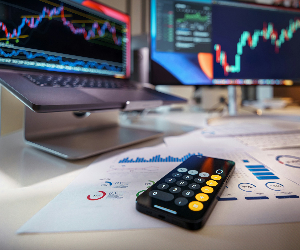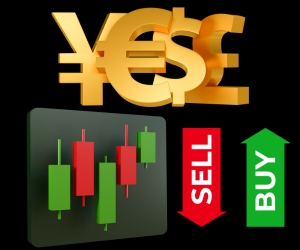Investing in silver has been a common practice since ancient times, seen both as a safe haven in times of economic uncertainty and as a tool to diversify portfolios. Today, there are various ways to invest in silver, each with its own advantages and disadvantages. This article will explain how to invest and the different ways to invest in silver, focusing on the main asset classes available, in addition to the strategies that should be applied.

How to Trade Silver
Silver is a precious metal and an industrial asset, known both for its use in jewelry and coins as well as its wide application in the electronics, photographic, and medical industries. It is considered a safe-haven asset and a diversification tool for investment portfolios. Below is a comprehensive guide on the alternatives for investing or trading in silver, the key reference markets, and the general steps to trade in this market.
Silver Investment Alternatives
Mining Company Stocks: Investing in companies dedicated to the extraction and processing of silver. The financial performance of these companies often reflects the fluctuations of the metal's price, though it's also subject to specific business risks.
Silver Futures: Standardized contracts to buy or sell a specific amount of silver at a future date for an agreed-upon price. These contracts allow leveraged trading and are traded on organized markets.
Silver ETFs: Exchange-traded funds that replicate the price of silver, generally through holdings of physical silver or via futures contracts. They offer an accessible way to gain exposure to the metal.
Silver CFDs: Contracts for difference that allow speculation on the price movements of silver without having to own the physical metal. These instruments typically operate with leverage, amplifying both gains and losses.
Physical Silver: Buying silver bullion or coins is the most traditional way to invest in this metal. Although it involves additional storage, insurance, and verification costs, it allows for direct ownership of the asset.
Silver Options: Derivative instruments that grant the right, but not the obligation, to buy or sell silver at a specified price before a certain date. They are useful for hedging strategies or speculation with risk limited to the premium paid.
Key Silver Markets
COMEX (New York): The primary futures exchange where standardized silver contracts (e.g., 5,000-ounce contracts) are traded, providing high liquidity and transparency.
London Bullion Market Association (LBMA): Although more recognized for gold, the LBMA also influences the price of physical silver through the establishment of international reference prices.
Shanghai Gold Exchange (SGE): A major market in Asia that, in addition to gold, offers trading in physical silver, influencing prices in the region.
OTC Markets: Bilateral transactions conducted outside organized exchanges in financial hubs like Zurich, Dubai, and Hong Kong, where silver is also traded.
General Steps to Trade Silver
Research and Analysis:
Inform yourself about the factors affecting the price of silver, such as inflation, interest rates, monetary policies, and industrial demand, particularly in sectors like electronics and photography. Review economic reports and relevant news to understand the dynamics of the silver market.Opening an Investment Account:
Open an account with a regulated broker or platform offering instruments to trade silver, whether through stocks, futures, ETFs, CFDs, options, or for purchasing physical silver. This process typically requires identity verification through submission of official identification and a utility bill.Define Investment Strategy:
Decide if your approach will be short-term, capitalizing on daily volatility through futures, CFDs, or options, or long-term, through buying mining stocks, ETFs, or even physical silver as a store of value. Set your goals, entry and exit points, and if you will use leverage, keep in mind the associated risks.Execution and Monitoring:
Execute buy or sell trades through your broker and continuously monitor the performance of your positions. Use charts and technical indicators to analyze trends and stay updated on economic news that may impact the price of silver.Risk Management and Diversification:
As silver is a volatile asset, set stop-loss limits and consider diversifying your portfolio with other assets to mitigate the risk of sudden price movements.
SWOT Analysis of Silver as an Investment
This SWOT analysis explores the factors affecting the silver market, a precious metal with applications in both industry and investment, evaluating its demand, volatility, and role as a store of value.
Strengths:
Industrial versatility: Silver has multiple applications in electronics, solar energy, medicine, and photography, which diversifies its demand.
Store of value: It is considered a safe asset and a hedge against inflation, similar to gold.
Liquid market: Silver is widely traded in global markets, offering good liquidity to investors.
Weaknesses:
Price volatility: Silver prices can fluctuate significantly in response to changes in the global economy and industrial demand.
Mining-dependent supply: Silver production heavily depends on mining activity, which can be affected by extraction costs and environmental issues.
Opportunities:
Growing industrial demand: The boom in sectors like solar energy and electronics can increase silver demand.
Investment as a safe haven: In times of economic uncertainty, silver may attract investors seeking protection against inflation.
Innovation in mining techniques: Technological improvements in extraction can reduce costs and increase the supply of quality silver.
Threats:
Economic fluctuations: Recessions and financial crises can reduce industrial demand and affect the price of silver.
Competition with other metals: The preference for gold as a store of value can limit the appeal of silver.
Environmental and regulatory risks: Stricter mining regulations can increase costs and affect production.
What is a Commodities Broker?
A Commodities Broker is the entity or platform that allows you to operate in global commodity markets, facilitating the buying and selling of products like oil, metals, grains, and other natural resources. These brokers provide access to specialized commodity exchanges and act as intermediaries between you and these markets.
Why do I need a Commodities Broker?
Investing in commodities can be an excellent strategy to diversify your portfolio and take advantage of price fluctuations in markets worldwide. However, operating in these markets requires specific knowledge, access to real-time information, and the use of specialized trading platforms. A Commodities Broker brings all these tools together in one place, allowing you to execute trades quickly and securely, in exchange for a commission or spread.
Examples and Comparisons:
There are several well-known brokers in the commodities field, such as Interactive Brokers, TradeStation, and Saxo Bank, among others. Each offers platforms with technical analysis tools, access to real-time market data, and different commission structures depending on the service. Some stand out for providing specialized commodities advice, while others may offer more competitive operating costs, allowing you to choose the option that best suits your needs and investor profile.
Regulatory and Security Aspects
It is crucial that the broker you choose is regulated by recognized financial authorities, such as the U.S. Commodity Futures Trading Commission (CFTC) or the Financial Conduct Authority (FCA) in the United Kingdom. This oversight ensures that the broker complies with strict security and transparency standards, providing you with greater confidence when investing your money in highly volatile markets.
How Do Commodities Brokers “Connect” to the Markets?
Through agreements with commodity exchanges and the use of advanced technological platforms, these brokers facilitate the execution of buy and sell orders in global markets. They arrange transactions according to price, order of arrival, and other parameters, charging a commission when the operation is executed. This technological infrastructure allows operations to be carried out quickly and securely, ensuring real-time tracking of your commodity investments.
In conclusion, a Commodities Broker is your gateway to commodity markets, offering the necessary tools, security, and access to diversify your portfolio and seize opportunities in this sector.



